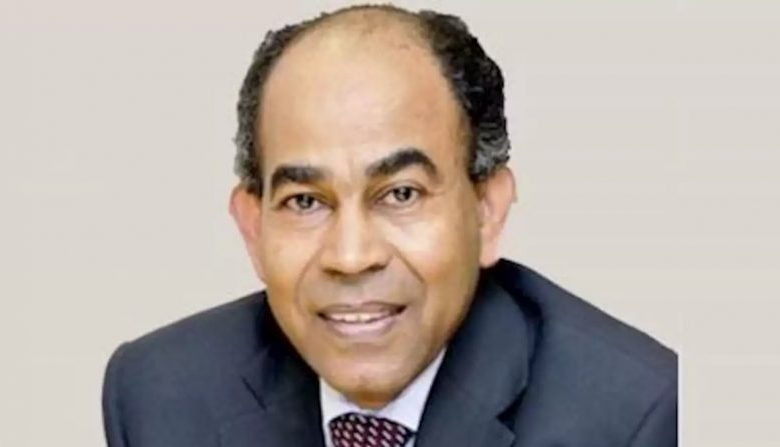Darfur, the Arab Diaspora, and Talk of Secession

By Othman Mirghani
With the defeat of the Rapid Support Forces (RSF) and their expulsion from Khartoum, their plan to seize control of Sudan has received a crippling blow. However, this does not mean that conspiracies against the country have ended or will cease. The next major front in the war has now shifted to Darfur and Kordofan, and much depends on its outcome—for Sudan’s unity, territorial integrity, and the defeat of looming agendas.
The day before yesterday, a friend sent me a voice recording by one of the theorists behind the idea of an “African Arab Diaspora State.” In it, he asserts the existence of a plan to “resettle non-Sudanese Arabs in Sudan,” describing it as a longstanding project that predates even the emergence of the RSF.
I had previously followed other recordings by this same speaker in which he passionately spoke of what he called a pan-Arab nationalist project aimed at uniting dispersed Arab communities across several African countries. He presented the war in Sudan as an opportunity to realize this vision. He did not hide his support for the RSF, even calling for the creation of a financial fund to support them, and for a recruitment campaign targeting youth to fight alongside them. So fervent was his advocacy that he warned Arabs in Chad that the failure of the RSF’s project in Sudan would mark the end of the dream of an African Arab Diaspora State. To heighten fear over the consequences of such failure, he claimed that retaliatory massacres would occur against Arabs in Chad, even genocidal acts targeting tribes that had supported the RSF.
What caught my attention in this latest recording was that the speaker emphasized that the project to resettle “Arabs of the Greater Nomadic Belt” was not tied to the RSF, but in fact predates it, dating back to 2006. In contrast to his previous recordings, he introduced a new narrative linking the issue to the National Congress Party, claiming that the party had an “unannounced vision” to settle non-Sudanese Arabs in Sudan. He alleged the existence of a “secret, unwritten agreement” between former Sudanese President Omar al-Bashir and the late Chadian President Idriss Déby, which supposedly allowed Chadian Arabs to settle in Sudan, while facilitating the resettlement of non-Arab Sudanese Africans in Chad.
The problem with such narratives lies in their reliance on unverifiable elements like “unwritten secret agreements” or “unannounced visions”—unless, of course, one of the involved parties voluntarily confirms them, which has not happened. Interestingly, while the speaker now seeks to shift blame to the National Congress Party, he had never previously mentioned this angle, raising questions about his motives and intent.
I’m not sure whether this rhetoric is merely for storytelling or meant to sow discord and incite strife between the Sudanese army and the allied forces fighting alongside it. It is no secret that some actors are trying to undermine trust and create tensions among these factions to influence the course of the war.
In any case, the RSF remains the spearhead of attempts to alter the demographic makeup of Darfur first, and other regions later, had it succeeded in seizing state power. It’s no secret that it has continuously recruited fighters from neighboring countries, especially from the African Arab diaspora. After their successive defeats in Sennar, Al-Jazirah, and Khartoum, we heard RSF leader Mohamed Hamdan Dagalo (Hemedti) and his deputy—his brother Abdelrahim—talk about recruiting one million fighters into their ranks. While this may have been a morale-boosting statement, it also indicates their intent to look beyond Sudan’s borders to recruit from the social bases of the Arab diaspora—whether in Chad, the Central African Republic, Niger, or Mali. Tactically, they have formed alliances with other armed movements outside of their traditional bases, especially after months of setbacks, but their eyes have always remained on support from the African Arab diaspora.
Now that the dream of seizing power has vanished, the RSF and its backers are focusing on the battle for Darfur. This makes the Darfur front a decisive one—not only for the RSF but for the unity of Sudan as a whole.
The army has made its position clear, repeatedly declaring that it will fight until the last border point is liberated and Darfur and Kordofan are reclaimed. This stands in defiance of those who suggest the army will lose interest in the war after retaking Khartoum, or who claim there is a supposed agreement to let the RSF keep Darfur in exchange for withdrawing from previously captured areas.
Darfur is an essential part of Sudan. Anyone who thinks its secession would bring peace and stability is deluded. The lesson of South Sudan, though different, is still fresh. Any new secession would be even more costly and more dangerous to Sudan and its future.
From Asharq Al-Awsat



